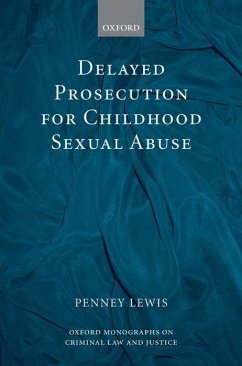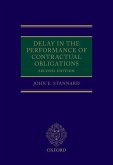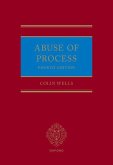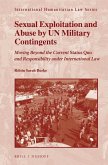Statutory and constitutional limits on the bringing of such cases are canvassed. The common law remedies of abuse of process and prohibition, which can ensure that unfair or oppressive prosecutions do not proceed, are examined. The focus then turns to the trial of delayed childhood sexual abuse allegations, considering the use which can be made by the prosecution and defence of evidence of complaint and delay in complaint, and the methods by which the jury can be informed of the reasons why complainants may delay. The role of warnings to the jury about the absence of corroboration and the forensic disadvantage or prejudice which the defendant may have suffered as a result of the complainant's delay in coming forward is scrutinized. Particular problems raised in cases involving recovered memories, and those involving multiple allegations are analysed. Finally, retrospective assessment of trial fairness and the safety of convictions is considered. The book is multi-jurisdictional in scope, focussing on those common law jurisdictions which have experienced a large number of such prosecutions: England and Wales; Ireland; Canada; Australia; New Zealand and the United States.
Child sexual abuse prosecutions are often brought following a substantial delay of some years after the alleged abuse. This delay poses a variety of problems for the prosecutions. The book will examine the problems associated with criminal prosecutions commenced many years after the abusive incidents were alleged to have occurred, the response of the criminal justice system to such cases, and how the system should respond in order to ensure that the defendant receives a fair trial, while recognising the reasons why complainants may delay reporting abuse for many years.
Child sexual abuse prosecutions are often brought following a substantial delay of some years after the alleged abuse. This delay poses a variety of problems for the prosecutions. The book will examine the problems associated with criminal prosecutions commenced many years after the abusive incidents were alleged to have occurred, the response of the criminal justice system to such cases, and how the system should respond in order to ensure that the defendant receives a fair trial, while recognising the reasons why complainants may delay reporting abuse for many years.








